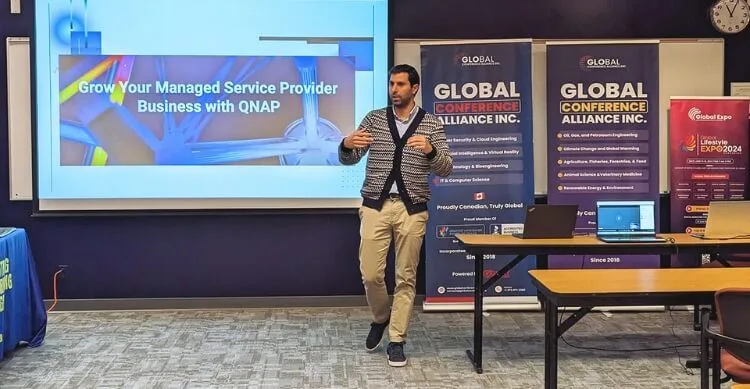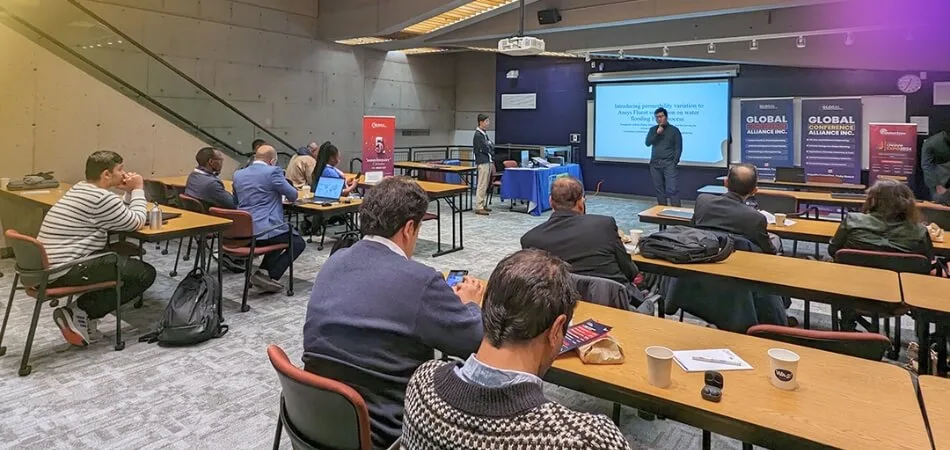A conference is a gathering where professionals come together to share knowledge, network, and gain insights into their industry. Taking part in these events can be crucial for career development, providing a platform to learn and grow. However, when it comes to the costs involved, what expense category is a conference?
Conferences generally fall under the “Professional Development” or “Training and Education” expense category. This includes registration fees, travel, accommodation, and meals, all focused on developing professional skills and knowledge.
Knowing this categorization is essential for budgeting and financial planning. Follow the rest of the article to explore more about managing conference-related expenses effectively and maximizing the benefits of attending such events.
The Core Intent of a Conference
The core intent of a conference is to connect like-minded individuals to share knowledge and build networks. The event provides a platform for discussing ideas, challenges, and opportunities. During the conversation, participants engage in meaningful dialogue that leads to collaboration and innovation. Such interactions contribute to attendees’ professional growth, developing their skills and knowledge.
Additionally, conferences help professionals stay updated with industry trends and developments. During the session, experts share their insights so participants can learn and adapt. It allows attendees to remain competitive in their respective fields by exchanging information. No matter where events are held—whether global summits in the USA, regional symposiums in the UK, or conferences in Canada—these events are key opportunities for professionals to network and collaborate.
Moreover, conferences often serve as a launching pad for new projects or initiatives. They provide a space for brainstorming and refining ideas. In the end, attendees leave with actionable takeaways that can be put into practice in their work. So, it is clear that the impact of these events extends beyond the event itself, influencing future decisions and strategies.
What Makes Conference Good?
A good conference is essential for maximizing the benefits of professional gatherings and making meaningful interactions. Here’s what makes a conference good:
- Relevant Content: A good conference offers insightful sessions and workshops tailored to the attendees’ interests and needs.
- Engaging Speakers: Compelling speakers who are experts in their fields captivate audiences, delivering valuable insights and inspiration.
- Interactive Sessions: Opportunities for interactive discussions, Q&A sessions, and hands-on workshops enhance attendee engagement and learning.
- Networking Opportunities: Well-planned networking sessions enable attendees to connect with peers, collaborators, and industry leaders.
- Diversity and Inclusion: A diverse lineup of speakers and inclusive programming ensure that different perspectives are represented and valued.
- Post-Conference Support: Continued access to resources, follow-up sessions, and online communities sustain the conference’s impact beyond its duration.
In essence, an outstanding conference is more than simply a gathering; it’s an enlightening experience that propels career advancement and cultivates lasting connections.
What Expense Category is a Conference?
When attending a conference, it’s important to understand how to manage and allocate expenses. Categorizing conference costs under the right budget heading is essential for effective financial planning. This helps in tracking expenditures and ensuring that the funds allocated contribute to professional development. Below is an explanation of how conference expenses are usually divided into specific categories to aid in financial planning:
Professional Development Expenses
Conferences are primarily categorized as professional development expenses. This category includes not only the registration fees but also the essential costs of travel and accommodations. These expenses are investments in developing professional skills and industry knowledge. Analyzing these costs properly can help organizations track the growth of their employees.
Moreover, allocating funds to this category ensures that all expenses are accounted for and justified as necessary for career advancement. It also simplifies tax reporting and funding processes, as these expenses are often deductible or eligible for refunds. The focus on professional development helps justify the allocation of resources, ensuring they align with career growth objectives.
Training and Education Costs
Another relevant category for conference expenses is training and education. This includes the direct educational aspects of a conference, such as workshops and seminars that aim to develop attendees’ knowledge and skills. Allocating costs to this category highlights the educational value of attending.
In this way, travel and entertainment expenses can be distinguished from learning and professional development expenses. It also allows organizations to better plan their annual training budgets, ensuring that employees receive continual learning opportunities. Recognizing these expenses under training and education motivates both attendees and sponsors by clearly defining the purpose and benefits of the investment.
Why it’s Important to Determine Conference Expenses?
Effectively managing conference expenses is crucial for successful event planning and financial stability. By determining these costs, organizers can plan strategically and ensure optimal resource allocation. Here we explore why it’s important to determine conference expenses:
Budget Allocation
Properly assessing conference expenses allows organizers to allocate funds wisely for venue, speakers, marketing, and logistics, ensuring a balanced budget throughout the planning process and avoiding unexpected financial constraints.
Cost Control
Identifying expenses in advance helps in implementing cost-saving strategies and avoiding overspending during the conference planning process. Understanding conference running costs allows for more efficient use of resources and helps maintain financial stability. Proper management of these costs can lead to higher profits or returns on investment. Effective cost control ensures that the event remains within budget while maximizing its potential.
Pricing Structure
Knowing the expenses assists in setting registration fees, ensuring they cover costs while remaining competitive in the market, thereby attracting a larger audience and increasing the event’s overall revenue potential.
Resource Management
By understanding the financial requirements, organizers can efficiently manage resources like staff, materials, and technology, optimizing productivity and minimizing waste, which ultimately contributes to the success and sustainability of the event.
Sponsorship Opportunities
Clear insight into expenses aids in presenting attractive sponsorship packages to potential sponsors, enhancing revenue generation for the event, and promoting beneficial partnerships that may extend beyond the conference itself, providing long-term support and opportunities for growth.
How to Utilize the Conference Expenses Effectively?
Maximizing the utilization of conference expenses is essential for achieving the event’s objectives and ensuring a positive return on investment. By following a systematic approach, organizers can effectively manage and allocate resources to optimize the conference’s outcomes.
Here is a step-by-step process of how to utilize the conference expenses effectively:
Step-1. Create a Detailed Budget Plan
Begin by outlining all anticipated expenses, including venue rental, speaker fees, marketing materials, and catering costs. This comprehensive budget plan serves as a roadmap for financial decision-making throughout the planning process.
Step-2. Prioritize Essential Expenses
Identify critical expenses that directly contribute to the conference’s success, such as quality speakers, engaging content, and reliable technology infrastructure. Allocate a significant portion of the budget to these key areas to ensure a high-quality attendee experience.
Step-3. Seek Cost-Saving Opportunities
Explore potential cost-saving measures, such as negotiating discounts with vendors, opting for virtual or hybrid event formats to reduce venue expenses, or leveraging sponsorships to offset certain costs. By being proactive in finding ways to lower expenses, organizers can stretch their budget further.
Step-4. Track Spending Closely
Monitor expenses closely throughout the planning process to stay within the allocated budget and identify any areas of overspending or unexpected costs promptly. Regularly review financial reports and adjust spending as needed to maintain financial stability.
Step-5. Evaluate ROI Post-Event
After the conference, evaluate the return on investment by comparing actual expenses to the outcomes achieved, such as attendee satisfaction, networking opportunities, and potential leads generated. This assessment helps organizers gauge the effectiveness of their spending decisions and identify areas for improvement in future events.
Step-6. Adjust Strategies for Future Conferences
Based on the post-event evaluation, adjust budgeting strategies and resource allocation tactics for future conferences. Incorporate lessons learned to streamline processes, optimize spending, and enhance overall conference effectiveness over time.
Essential Tips for Tracking Conference-Related Expenses
Maintaining an effective record of conference-related expenses ensures that you stay within budget and maximize the value of your investment. Proper expense management requires attention to detail and organized record-keeping. Listed below are essential tips for tracking your conference spending:
- Use an Expense Tracking App: Utilize an expense tracking app to log every transaction during the conference. This method helps you monitor and manage spending easily.
- Keep All Receipts Organized: Collect and organize all physical and digital receipts in one place. This practice ensures accurate records for reimbursements and reports.
- Categorize Expenses by Type: Divide your expenses into categories like travel, meals, and accommodation. This organization simplifies tracking and highlights fixed conference expenses clearly.
- Review Expenses Daily: At the end of each day, review all expenses to stay on track. Regular monitoring prevents overspending and ensures budget adherence.
- Utilize Credit Cards for Conference Payments: Use credit cards for conference-related payments to earn rewards or cashback. This strategy also simplifies expense tracking and record-keeping.
- Prepare a Post-Conference Expense Report: Compile a detailed expense report after the conference. This report will help in reimbursement processes and future budget planning.
Frequently Asked Questions about What Expense Category is a Conference?
Here are some of the FAQs and their relevant answers for a clear concept of what expense category is a conference:
Are Registration Fees Considered Part of Conference Expenses?
Yes, registration fees collected from attendees are typically categorized as conference revenue rather than expenses, as they contribute to covering the costs associated with organizing the event.
How Can I Control Conference Expenses to Stay Within Budget?
To control conference expenses, consider negotiating vendor contracts, exploring cost-effective alternatives, implementing strict budgetary guidelines, and closely monitoring expenditures throughout the planning process.
Are There Any Hidden Costs Associated with Organizing a Conference?
Hidden costs may include taxes, service charges, gratuities, and incidental expenses that are not explicitly outlined in vendor contracts or initial budget estimates, so it’s essential to account for potential additional charges.
Can I Obtain Sponsorships to Offset Conference Expenses?
Yes, securing sponsorships from businesses, organizations, or individuals can help offset conference expenses by providing financial support or covering specific costs in exchange for branding opportunities and promotional benefits.
How Should I Prioritize Conference Expenses when Budgeting?
Prioritize essential expenses such as venue rental, speaker fees, and catering, allocating funds based on their relative importance to the success of the conference while considering potential cost-saving opportunities in other areas.
Conclusion
Our investigation of conference expenses highlights how important they are for promoting networking and professional development. For companies that prioritize development and innovation, these events are vital investments.
Diving into “What expense category is a conference?” reveals that training and development expenses are the key categories for conferences. This realization highlights how crucial conferences are for improving professional abilities and industry knowledge, which greatly aids in an organization’s growth strategy.
Through careful oversight of these costs, companies may optimize the benefits of conferences. With careful budgeting and strategic preparation, every conference not only promotes professional growth but also meets financial objectives, making it an invaluable resource in the competitive corporate world.








